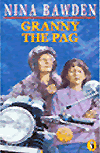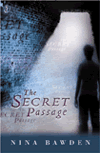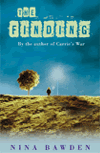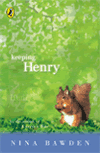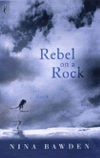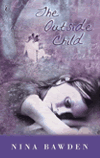

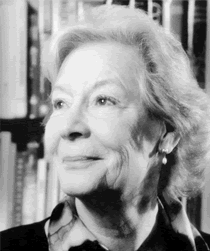



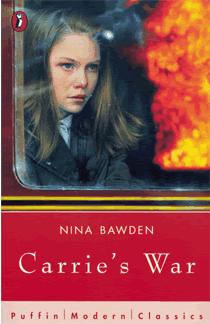
Nina Bawden once dreamed of being an explorer and later she wanted to be a war reporter. Instead she went to university in Oxford at the end of the war to study politics, philosophy and economics. She married soon after she had finished her studies and began her family.
She had loved reading when she was young and wrote her first novel when she was only eight – though she realised that it wasn’t very good. She also wrote a school play about elephant hunters in Africa: when she saw it performed on the stage she ran to hide in the toilets to cry because it was so dreadful. When she was at university she wrote a short story, which was published in a magazine. Her first ‘proper’ novel was published in 1953 and she has been writing ever since.
In her books, she often writes about places, events and people she has known. The readers can imagine themselves in similar situations because they seem so real. Many of her stories involve secrets – the complications that occur when people try to keep things hidden and what happens when the secrets come out. They are also about how children can adapt to change and how they try to make sense of only half-understood facts. Usually by the end of the book, the characters have found out a little more about themselves and the world around them. In Carrie’s War, Carrie has to wait until she grows up to really understand what she went through.
Nina Bawden has been described as ‘one of the very best writers for children’. She says: ‘I like writing for children. It seems to me that most people underestimate their
understanding and the strength of their feelings and in my books for them I try to put this right.’ She thinks that in real life children are ‘always at the mercy of the adults who mostly run their lives for them’ and so in her novels, she gives her young characters a chance to prove themselves. She says: ‘Horrible characters are lovely to write about because you can get your own back on all sorts of people you never liked when you were young.’
Carrie’s War is available as a paperback book and as an audio tape from Puffin. A TV adaptation shown in 2003 is available as a DVD from Acorn Media Ltd.
What the press has said about Carrie’s War:
An outstanding book, written with compassion and with insight and above all with honesty.
New Statesman
No one could be too old for it... Carrie’s War is as vivid and elusive as a good dream.
Times Educational Supplement
She has a depth of perception, an almost supernatural understanding of a child’s mind, which, with her gloriously understated sense of humour and a sound common sense, make every word ring not only memorable but true.
Daily Telegraph
The best account I know of how children adapted to strange surroundings in wartime.
The Times

